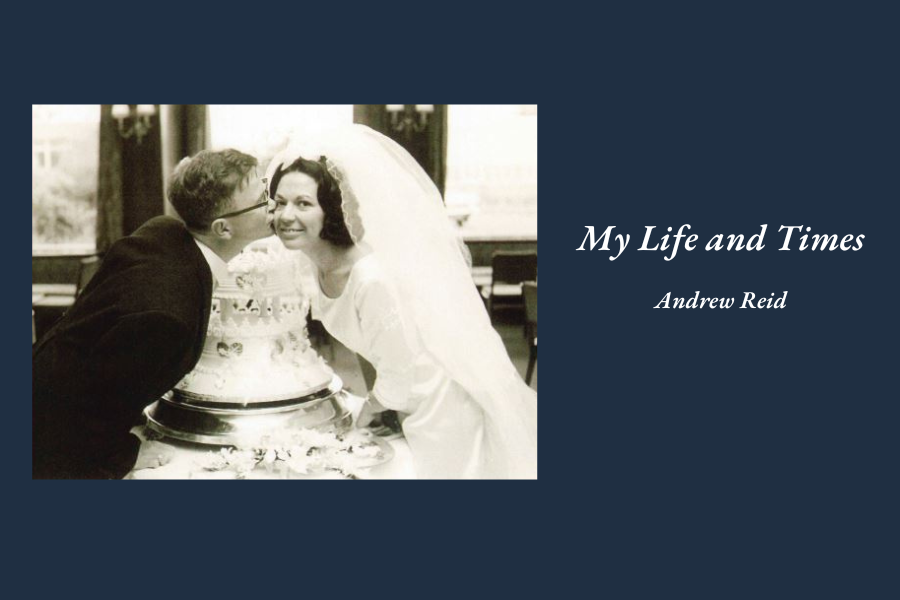There are as many different reasons for writing a memoir as there are writers of memoirs. Some of the most compelling objectives for our authors at LifeBook Memoirs are to leave a legacy for their families, to tell their children and grandchildren about their lives, to impart their memories of a childhood lived in a world perhaps long past and to explain how they came to be where they are now. Woven into these objectives, however, may be a complex of other reasons: perhaps authors wish to meditate on their experiences or the ingredients for a good life, reflect on what they have learnt or entertain their readers with a LifeBook of joyous or extraordinary adventures.
LifeBook Memoirs author Andrew Reid’s decision to write his life story was inspired by just such a complex of aims. Regretting how little he knew of his father and the questions he never asked, his memoir was his opportunity to bring together what he does know about his forebears, to record his own history and to display his carefully documented collection of photographs. The result is the story of a full and exemplary life.
Early years
Born in 1940, he spent his early years living in Ilford – bomb alley for the Luftwaffe. An unenthusiastic student at his public school – a very British institution characterised by beatings and unheated outdoor swimming pools – he went on to enjoy reading medicine at the University of St Andrews, where he was surrounded by a cast of extraordinary friends and developed a strong social conscience. The newly qualified Dr Reid was, initially, fascinated by neurosurgery but soon decided to specialise in psychiatry. A long and distinguished career in general psychiatry, old-age psychiatry and learning disability followed, including community, academic and public posts.
At the same time, Andrew Reid was an intrepid traveller, and he devotes a chapter to one of the best travel stories I have ever been privileged to edit at LifeBook Memoirs. In 1962, he and his brother, Peter, drove a Land Rover 6,000 miles from Cairo to Cape Town armed with little more than an AA book about African highways, a winch, some planks and a sword stick for defensive purposes. It was never needed. Told in part through letters sent home to his mother, Andrew recounts rescuing Egyptian dignitaries whose car had broken down in the desert, hitching a ride to Sudan on a barge carrying a cargo of stinking hides, meeting Emperor Haile Selassie’s previously favourite but now disgraced nephew, enjoying mile after mile of Africa’s glorious wildlife and being visited, silently and politely, by Somali nomads one night. It is a spectacular and enthralling adventure.
A celebration of life
Andrew Reid’s story is, however, also a tremendously moving one. Part of his purpose for writing his memoir is, he says, to find a way to fill the long, lonely winter nights after the death of Margo, his wife of more than 50 years. His book is both a celebration of her life and part of the process of grieving for her. The words with which he speaks of the wonderful, elegant woman with whom he shared so many years, and of his sense of loss that she is gone, still have the power to bring a lump to my throat.
As Andrew Reid’s editor, I remember his book with much affection, admiring his quietly laudable life of caring, the complete lack of ostentation with which he describes his adventures and the warmth of his happiness with his wife. His is a tale modestly told but rich in experience.

Written by Kate Parry, LifeBook Memoirs editor,

